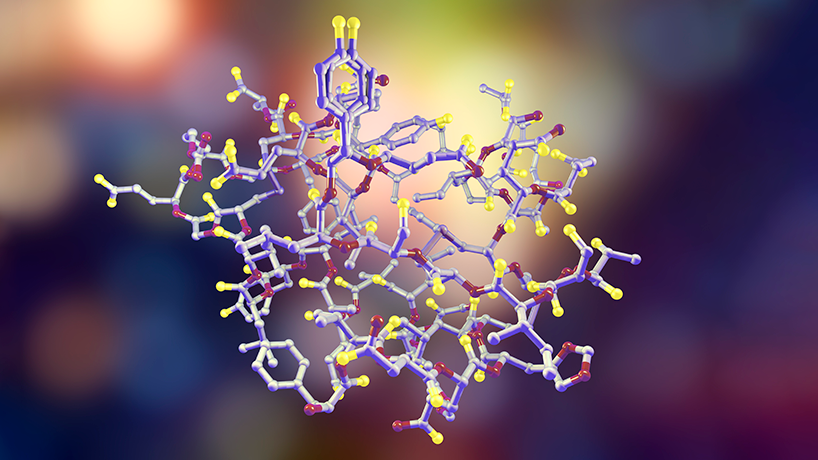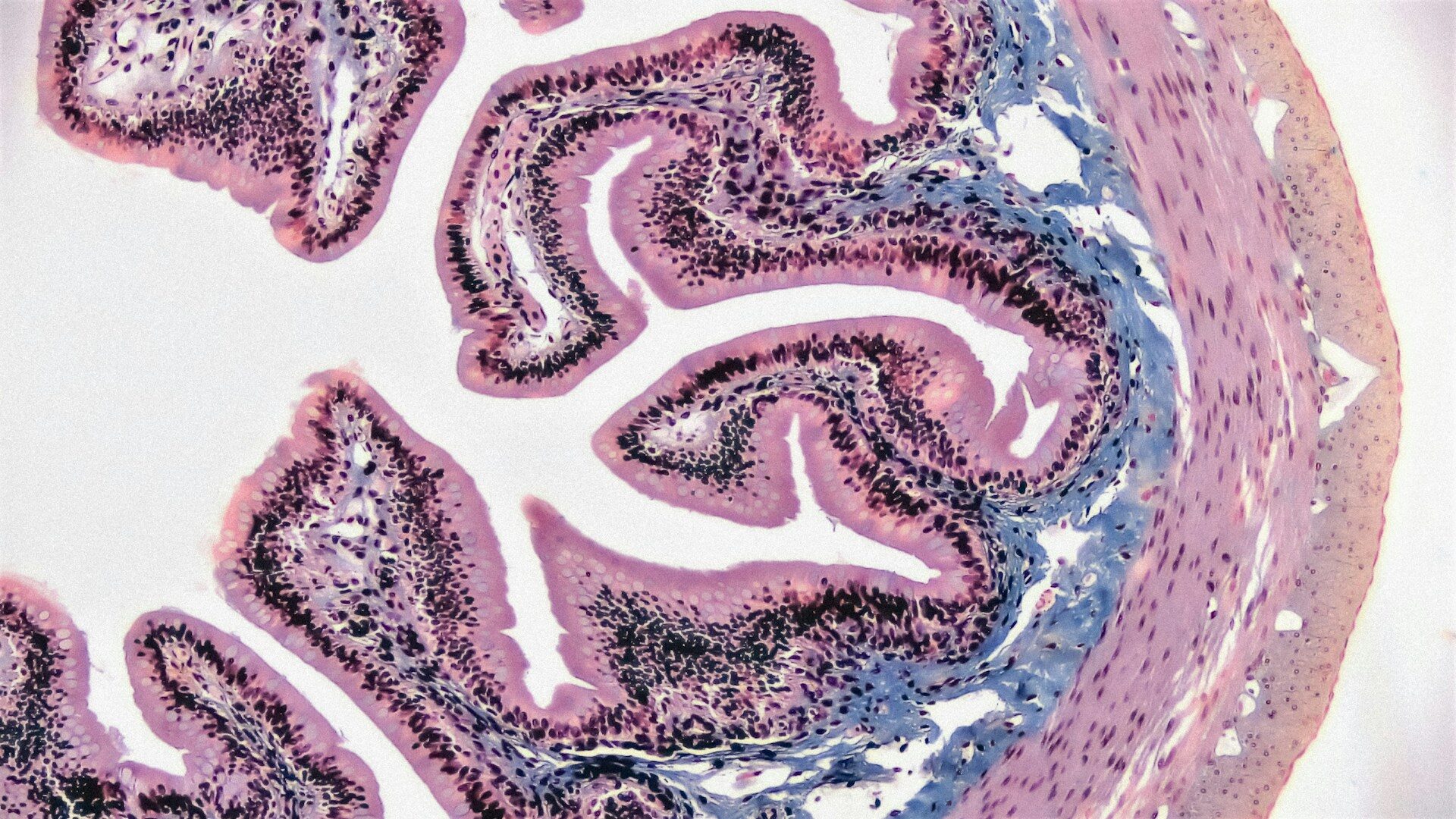Hormones are powerful chemical messengers that regulate nearly every function in your body, from energy levels and mood to metabolism and sleep. This blog post explores the basics of how hormones work, common signs of imbalance, and actionable tips to support hormonal health through diet, lifestyle, and stress management. By understanding your hormones, you can take steps to achieve better balance and improve your overall well-being.
By the end of this article, I hope you understand the different types of hormones in your body, what they are responsible for, and how to maintain a healthy hormone balance.

What are hormones?
A hormone is a chemical messenger produced by glands in the endocrine system, or the hormone network. These molecules work by traveling through the bloodstream to different parts of the body. When the hormone reaches its destination, it will send the message for that cell to take a specific action.
Hormones influence all the major functions of the body, such as growth, metabolism, mood, reproduction, and sleep. Each hormone works by binding to its target cells, much like a key fits into a matching lock. And every type of hormone has a specific job. For example, insulin helps regulate blood sugar levels, while cortisol manages stress.
Here is a list of the main hormones and their functions:
- Estrogen: reproductive hormone, bone health
- Progesterone: regulates cycle, mood, and ovulation
- Testosterone: responsible for sex drive, muscle tissue, and energy
- Cortisol: stress response hormone
- Insulin: blood sugar balance
- Melatonin: sleep/wake cycle
- Vitamin D: immune system, insulin sensitivity
- Ghrelin: hunger balance
- Leptin: signals fullness
- Thyroid: metabolism, energy
- Endorphin: feel-good hormone, released in response to pain or stress
- Serotonin: influences memory, happiness, and drive
As you start to be more aware of your hormones, keep a health journal to track patterns in your mood, energy, sleep, and physical symptoms, such as the appearance of acne, headaches, or stomach aches. Noticing these patterns can help you better understand how your hormones might be influencing your daily life and guide you in discussing concerns with a healthcare professional.
What makes your hormones go out of balance?
The most common causes of hormone imbalance include chronic stress, gut issues, under eating, and blood sugar irregulation.

Chronic Stress
The hormone cortisol is released when your body is under stress or experiences trauma. However, extended release of cortisol will throw off your body’s endocrine system, or the hormone network. It will not take long before other hormones are overproduced to balance out the overwhelming amount of cortisol.
Gut Issues
Gut problems can significantly influence hormone balance due to the gut’s central role in the body’s endocrine system. The gut houses a large portion of the body’s immune cells and is involved in various processes that regulate metabolism, appetite, stress, and reproduction.

Here are some ways gut issues can affect hormone levels:
1. Gut Microbiome and Hormonal Regulation
The gut microbiome, made up of trillions of bacteria, plays a crucial role in the metabolism and synthesis of hormones. Imbalances in the gut microbiome (called “dysbiosis”) can lead to changes in hormone levels.
2. Leaky Gut and Hormone Imbalances
Leaky gut syndrome, where the intestinal lining becomes permeable, can allow toxins and undigested food particles to enter the bloodstream. This can trigger inflammation and stress, which in turn can affect cortisol levels (the stress hormone).
3. Cortisol and the Gut
The gut-brain axis is a two-way communication system between the brain and the gut. Chronic gut problems like IBS (Irritable Bowel Syndrome) or inflammatory bowel disease (IBD) can cause prolonged stress, leading to elevated cortisol levels.
Under Eating
Undereating, or consistently consuming fewer calories than your body needs, can have a significant impact on hormone balance. The body relies on an adequate intake of nutrients to support the production and regulation of hormones, and when calorie intake is insufficient, it can disrupt several hormonal systems.
Blood Sugar Imbalance
Blood sugar imbalance, whether in the form of high blood sugar (hyperglycemia) or low blood sugar (hypoglycemia), can significantly impact hormonal health. Blood sugar levels are tightly regulated by various hormones, and any imbalance can trigger disruptions in other hormonal systems.
Insulin is the primary hormone responsible for regulating blood sugar levels. It helps move glucose from the bloodstream into cells for energy or storage. When blood sugar levels are consistently high, such as in insulin resistance or diabetes, the body may produce more insulin to compensate.
Over time, the body’s cells become less responsive to insulin (insulin resistance), leading to higher insulin levels. Elevated insulin can disrupt other hormonal systems, particularly in women, where it can increase androgen (male hormone) production, leading to conditions like polycystic ovary syndrome (PCOS).
______________________
In short, your stress, your gut microbiome, and your hormones all affect each other. However, the biggest culprit for hormone imbalance is chronic stress.
If your body is riddled with chronic stress and inflammation, take practical steps to address the issues. Here are a few things that I applied early in my healing journey:
- Practice gratitude: write down 3-5 things every day that you are thankful for
- Communicate when you are overwhelmed: find a safe person to call or text when your body and mind are overwhelmed
- Quit or step away from stressful circumstances: actively remove yourself from escalating situations, such as arguments or overly excited people
- Take practical steps to feed your gut foods that support your healing. Be mindful of what you are eating and how it is affecting you.
- Eat at regular times and regular amounts.
How to Balance Your Hormones
Balancing your hormones involves supporting the body’s natural processes and addressing factors that may be contributing to hormone imbalances. Here are three effective steps you can take to help balance your hormones:

1. Improve Your Diet
- Eat a balanced, nutrient-dense diet: Focus on whole, unprocessed foods that provide essential vitamins, minerals, and healthy fats. Include a variety of vegetables, fruits, lean proteins, whole grains, and healthy fats like avocados, nuts, and seeds. This helps provide the nutrients needed for hormone production and regulation.
- Incorporate healthy fats: Hormones are made from fats, so it’s important to consume enough healthy fats from sources like olive oil, coconut oil, flaxseeds, and fatty fish (salmon, mackerel). Omega-3 fatty acids, in particular, help reduce inflammation and support hormone balance.
- Minimize sugar and processed foods: Refined sugars and processed foods can lead to insulin resistance, which can disrupt hormone balance. Reducing sugar intake and limiting processed foods can help stabilize blood sugar and improve overall hormonal health.
- Support liver health: The liver plays a key role in detoxifying excess hormones, especially estrogen. Foods like cruciferous vegetables (broccoli, cabbage, kale), garlic, onions, and beets can support liver function and help regulate estrogen levels.

2. Manage Stress and Sleep
- Practice stress-reducing techniques: Chronic stress leads to elevated cortisol levels, which can interfere with the balance of other hormones. Incorporate practices such as deep breathing, meditation, gratitude, journaling, or spending time in nature to reduce stress and calm the nervous system.
- Prioritize quality sleep: Sleep is crucial for hormone production and regulation. Aim for 7–9 hours of quality sleep each night to allow the body to restore and maintain hormonal balance. Poor sleep can lead to imbalances in cortisol, insulin, and appetite-regulating hormones like ghrelin and leptin.
- Set a regular sleep schedule: Going to bed and waking up at the same time each day helps regulate the body’s circadian rhythm, which in turn supports hormonal rhythms, including melatonin production for restful sleep.

3. Exercise Regularly
- Engage in regular physical activity: Exercise has a powerful impact on hormone balance. It can help regulate insulin levels, reduce cortisol, and support the production of feel-good hormones like endorphins and serotonin. Aim for a mix of aerobic exercise (e.g., walking, cycling) and strength training (e.g., weight lifting) to improve hormone function.
- Practice moderation: While regular exercise is beneficial, over-exercising or intense, prolonged workouts can increase cortisol levels and disrupt the balance of reproductive hormones. Balance high-intensity training with low-impact activities like walking, yoga, or swimming to avoid overtaxing the body.
By focusing on these three steps—eating a balanced diet, managing stress and sleep, and exercising regularly—you can create a foundation for balanced hormones and improved overall well-being.
In conclusion, hormones are powerful chemical messengers that regulate nearly every process in the body, from metabolism and energy production to mood, reproductive health, and beyond. When our hormones are out of balance, it can lead to a wide range of symptoms that affect our physical and emotional well-being. Hormonal imbalances can occur for many reasons, including stress, gut issues, undereating, and blood sugar imbalance.
The good news is that hormone balance is within reach, and by taking proactive steps, we can support our bodies in maintaining optimal hormonal health. By understanding the role of hormones and the factors that contribute to imbalances, we can empower ourselves to make informed choices that foster long-term health and well-being. It’s important to remember that balancing hormones is a journey, and with patience, care, and consistent effort, it’s possible to reclaim harmony and thrive in our bodies and our minds.
If you’re unsure where to start or need personalized guidance, don’t hesitate to reach out to our team at Hope Found, or consult with a healthcare provider or nutritionist who specializes in hormone health. Your hormones matter—take action now and start your journey toward optimal health!




